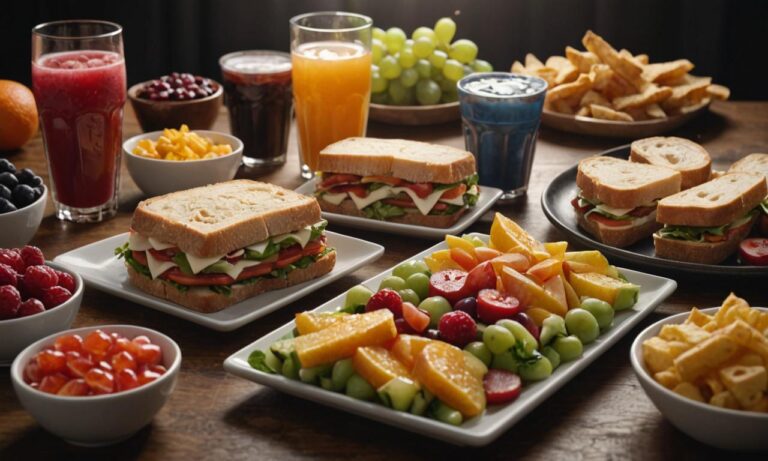Welcome aboard! As you embark on your journey, you might be wondering about the possibility of bringing your favorite snacks or a homemade meal along. Let’s explore the rules and regulations surrounding the transportation of food items on airplanes.
Understanding Transportation Security Administration (TSA) Guidelines
The Transportation Security Administration (TSA) plays a crucial role in ensuring the safety and security of air travel. When it comes to bringing food on the airplane, the TSA has specific guidelines that passengers should be aware of. In general, solid food items are allowed through security checkpoints, while liquids and gels are subject to the 3-1-1 rule, where they must be in containers of 3.4 ounces (100 milliliters) or less and placed in a quart-sized, clear, resealable plastic bag.
Types of Food Permitted
Most solid foods are allowed in your carry-on baggage. This includes fruits, sandwiches, snacks, and even homemade meals. However, it’s essential to consider the nature of the food items you’re bringing to avoid any complications at security checkpoints. Avoid liquids, sauces, or items with a high liquid content that might violate the 3-1-1 rule.
Additional Considerations
While the TSA provides general guidelines, it’s essential to be aware of any specific rules imposed by the airline you’re traveling with. Some airlines may have additional restrictions or recommendations regarding the types of food that can be brought on board. Checking the airline’s official website or contacting their customer service can provide you with detailed and up-to-date information.
Packaging and Preparation
When packing food for your journey, consider the convenience of fellow passengers and the airline staff. Use secure containers to prevent spills or odors that may disturb others. Additionally, be mindful of the potential for certain foods to spoil during the flight, especially for longer journeys. Pack perishable items in insulated containers to maintain freshness.
International Travel Considerations
For those embarking on international flights, it’s crucial to be aware of the customs and import regulations of the destination country. Some nations have strict rules about bringing certain food items across borders. Researching and understanding these regulations in advance can save you from any inconvenience upon arrival.
In conclusion, bringing food on an airplane is generally permitted, with certain guidelines to follow. By adhering to TSA regulations, considering airline-specific rules, and being mindful of international travel restrictions, you can enjoy your favorite snacks and meals during your journey. Bon voyage!
Frequently Asked Questions
As you prepare to bring food on your airplane journey, you may have some common questions. Let’s address a few of them to ensure a smooth and enjoyable travel experience.
Q1: Can I Bring Beverages on the Airplane?
While solid foods generally pose no issues, beverages fall under the liquid category and are subject to the 3-1-1 rule. Ensure that your drinks are in containers of 3.4 ounces (100 milliliters) or less and are packed in a quart-sized, clear, resealable plastic bag for easy security screening.
Q2: Are There Restrictions on Homemade Snacks?
Homemade snacks are generally allowed, but it’s essential to consider their nature. Avoid bringing overly liquid or perishable items, as they may not comply with security regulations. Opt for well-packaged and non-spillable homemade treats to avoid any issues during your journey.
Exploring In-Flight Dining Options
While bringing your own food is an excellent option, some travelers prefer exploring in-flight dining choices. Airlines often provide various meal options, including special dietary selections. Check with your airline in advance to explore the menu and pre-order meals that suit your preferences or dietary restrictions.
| Airline Dining Options | Advantages | Considerations |
|---|---|---|
| Standard Meal Service | Convenient for those who prefer not to bring their own food. | Limited options for special dietary needs; may incur additional charges. |
| Pre-Ordered Special Meals | Caters to specific dietary requirements or preferences. | Advance selection required; availability varies by airline. |
Staying Informed About Allergen Policies
If you have food allergies, it’s crucial to be aware of the airline’s allergen policies. Some airlines provide detailed information about allergens present in their in-flight meals. Contact the airline in advance to discuss your specific allergies and determine the best course of action for a safe and enjoyable journey.
See also:






